Emory Unveils New
Community Engagement Strategy
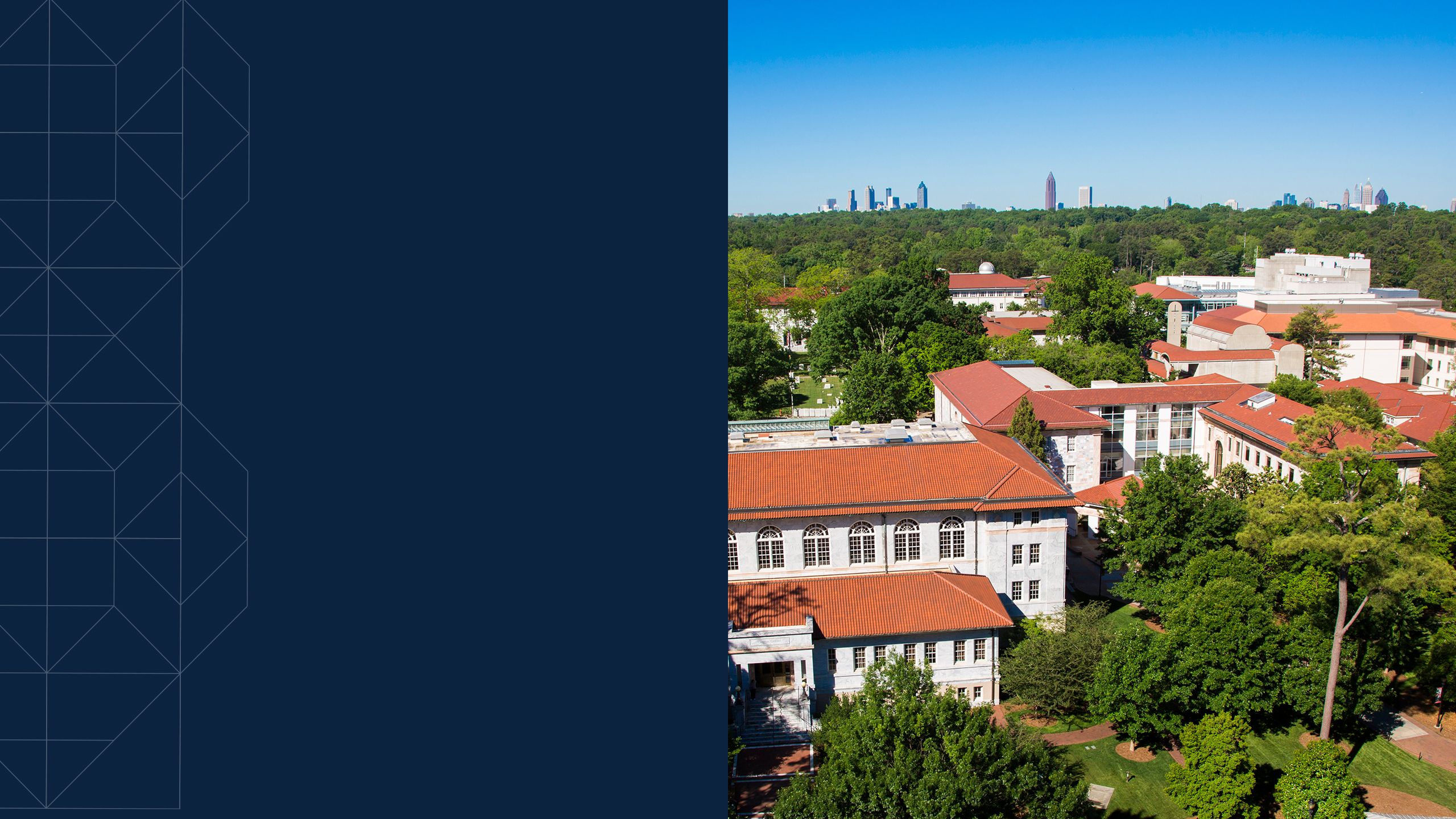
Community. It implies mutuality and commitment,
a shared investment in one another.

Throughout its history, Emory has sought to live up to the highest ideals of the word when engaging with external partners. The university’s new, centralized community engagement strategy will bring even greater coherence to this important work.
“So much of Emory’s work in the city and state has been done for the right reasons and brings value; however, it could achieve deeper impact as part of a system of mutual benefit between Emory and its community partners,” says Cameron Taylor, vice president for government and community affairs.
Taylor put resources to the task and now, two years and many conversations later, Emory’s community engagement strategy is ready to be unveiled more widely. Its three focus areas, reflecting Emory strengths and community needs, are as follows. Each has the backing of an Emory dean.
- Social and Economic Mobility, led by Karen Sedatole, interim dean of Goizueta Business School
- Health and Well-being, led by Linda McCauley, dean of the Nell Hodgson Woodruff School of Nursing
- Arts, Science and Cultural Enrichment, led by Michael Elliott, dean of Emory College of Arts and Sciences
Although the work began before President Gregory L. Fenves arrived, he has engaged closely with it and offered his full support. “Emory’s community engagement strategy marks a crucial stage in the university’s evolution,” he says. “It will help Emory strengthen its connections in Atlanta and across Georgia as well as build powerful partnerships to identify, address and help solve challenges that are of vital importance to our communities.”
Establishing the Strategy
In 2019, Taylor hired Alan Anderson, assistant vice president for university partnerships, giving him the charge of leading the first enterprise-wide, local community engagement strategy for the university, as well as building, enhancing and sustaining signature programs and partnerships in alignment with it.
He brought significant experience to the role, having previously held leadership positions in neighborhood and community relations at Northwestern University, nonprofit management at Year Up Chicago, K–12 education administration at Chicago Public Schools and executive leadership at Motorola.
Some of his foundational questions included: How could the strategy be about more than sharing Emory’s programmatic strengths? For instance, how could the university reflect its core values regarding sustainable practices, fairness and justice?
Anderson assembled a task force that helped him inventory the myriad projects in existence. Emory’s Impact Report gives a sense for some of the key partnerships, but there are hundreds more. Once a sense of scope was established, the task force defined the overarching vision, mission and guiding principles for the new community engagement strategy and then began the admittedly difficult work of determining which projects and programs to elevate.
About his role, Anderson says, “From the time I arrived here and even after COVID-19 made my travels virtual, I have understood that my job is fundamentally to move about, to be in touch with all that Emory has to offer and to circulate widely in the community, hearing and responding to its needs.”
The Focus Areas

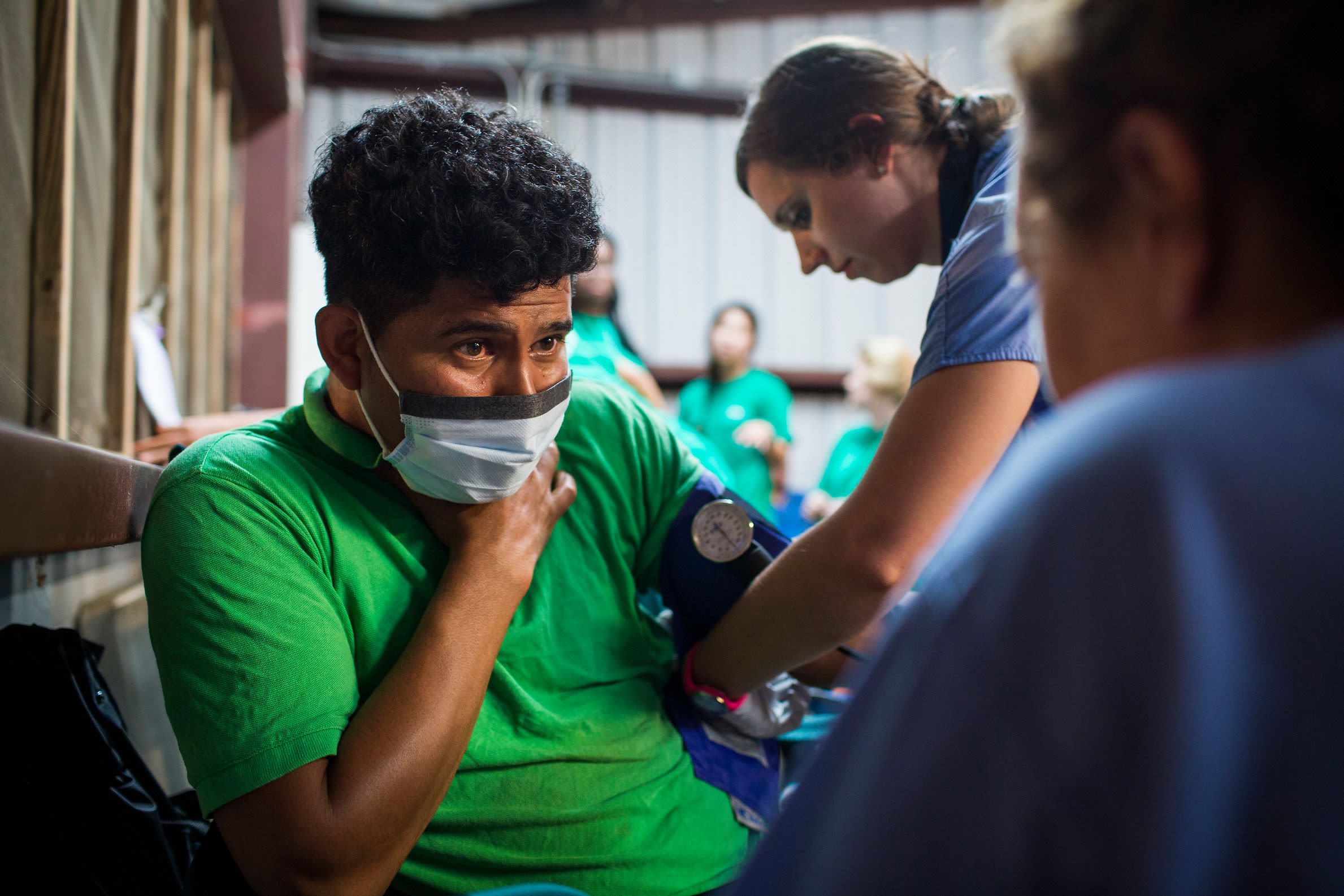
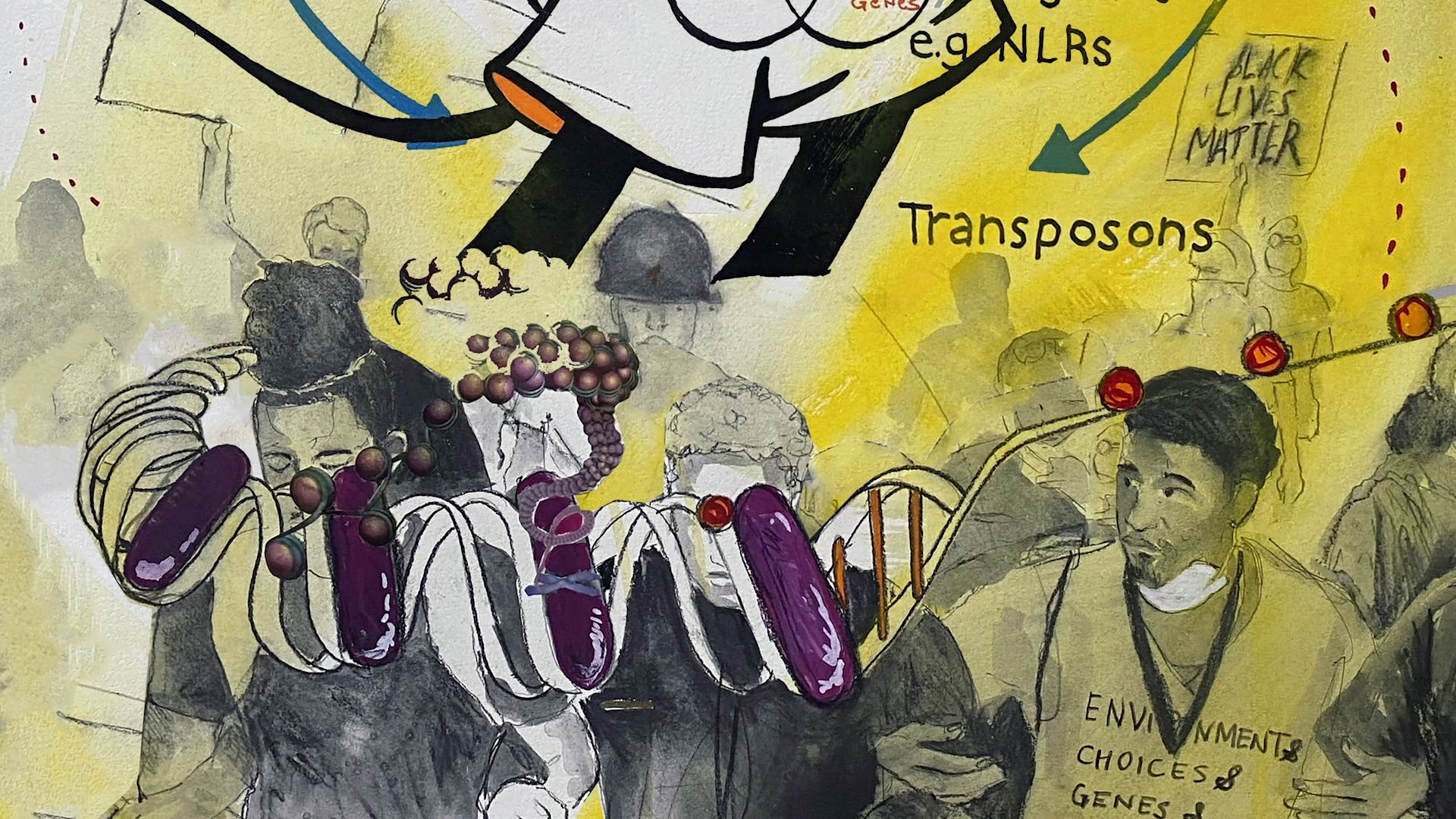
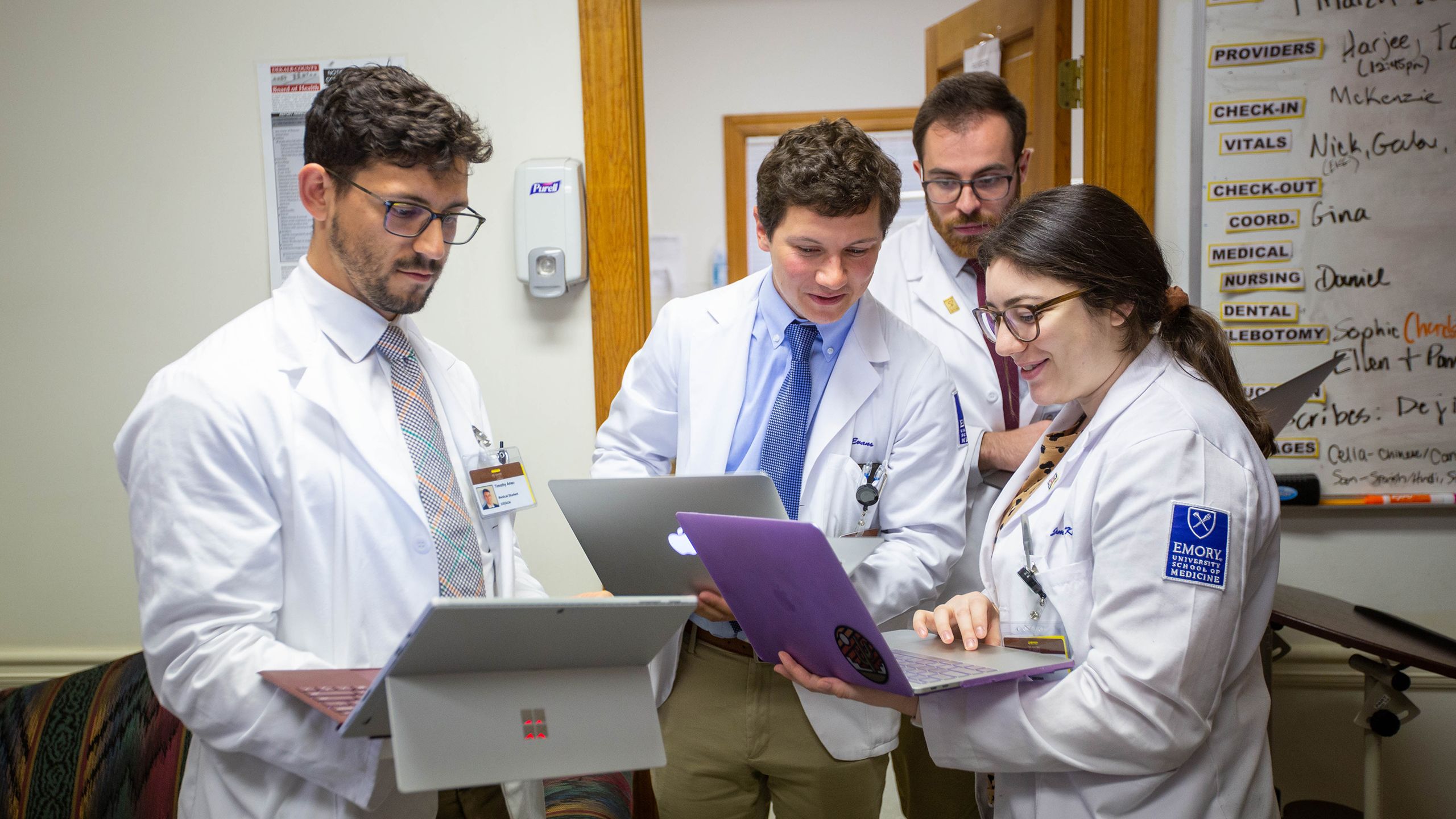

Tending to the health of farmworkers in Moultrie, Georgia, is part of the School of Nursing's Farmworker Family Health Program, which has existed for 28 years.
Tending to the health of farmworkers in Moultrie, Georgia, is part of the School of Nursing's Farmworker Family Health Program, which has existed for 28 years.

The Arts and Social Justice Fellows Program brings together Emory students and faculty members with Atlanta artists to explore how creative thinking and expression can inspire change.
The Arts and Social Justice Fellows Program brings together Emory students and faculty members with Atlanta artists to explore how creative thinking and expression can inspire change.

School of Medicine students have long supported the Clarkston Community Health Center. Two students founded the mental health clinic at the center in 2017.
School of Medicine students have long supported the Clarkston Community Health Center. Two students founded the mental health clinic at the center in 2017.
Within Social and Economic Mobility, the goal will be closing gaps in Pre-K–20 student achievement and academic preparedness through strategic, collaborative partnerships; generating meaningful local employment opportunities for the future workforce through education, development and hiring; and making investments and intentionally sourcing projects and services from local businesses.
Among many initiatives at Emory that fall in this column, a proven one is Start:ME, a business-training program that Goizueta Business School delivers in partnership with several community nonprofits.
Musa Abdus-Saboor credits Start:ME with giving him the confidence to break away from working for others as an electrician and instead start his own business. As he describes it, “I really wanted to steer my own ship and my own life.”
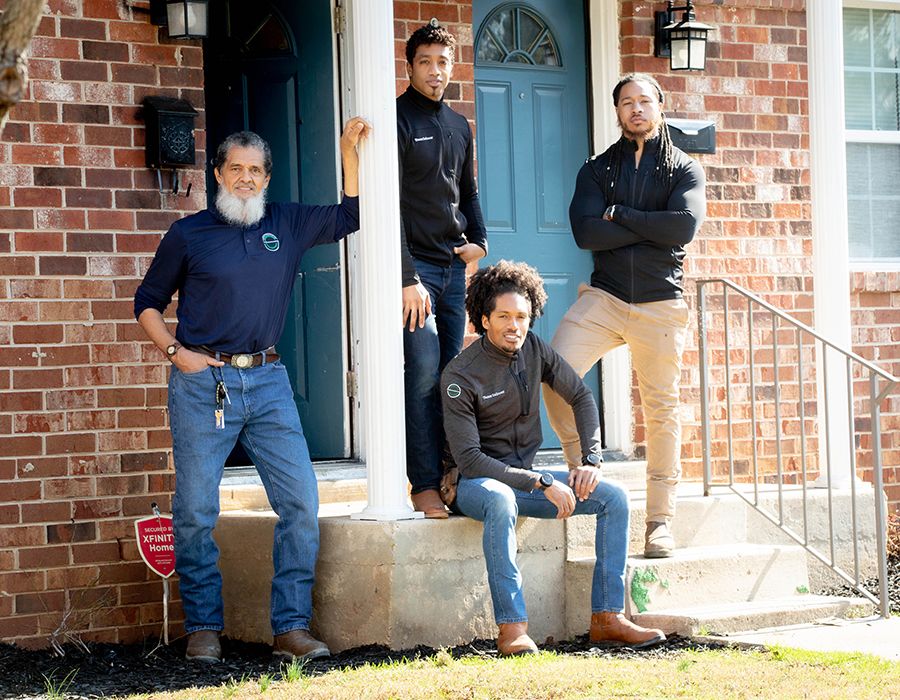
Musa Abdus-Saboor (standing, center) with employees of his electrical firm
Musa Abdus-Saboor (standing, center) with employees of his electrical firm
The program provided him counsel about the intricacies of running a business as well as a network of advisers who remain available to field questions. As a result of Start:ME, his firm has significantly increased its number of business partners, which in turn has made hiring more staff possible. Among his partners? Emory. His company is a registered small business contractor with the university.
Sedatole understands that business plays a critical role in economic equity and mobility. “A transformative program like Start:ME, where we are serving hundreds of businesses in Clarkston, East Lake and historic South Atlanta, helps close the microbusiness gap,” she says. “We hope to address issues of inequality by creating an economic ecosystem where all can thrive.”
Under Health and Well-being, Emory seeks to enhance the quality of life for all individuals through the greater Atlanta area, with an intentional focus on addressing health disparities and the social determinants of health. Here, the university’s resources in scholarship, service, research, spirituality and medicine will be targeted to foster healthy communities.
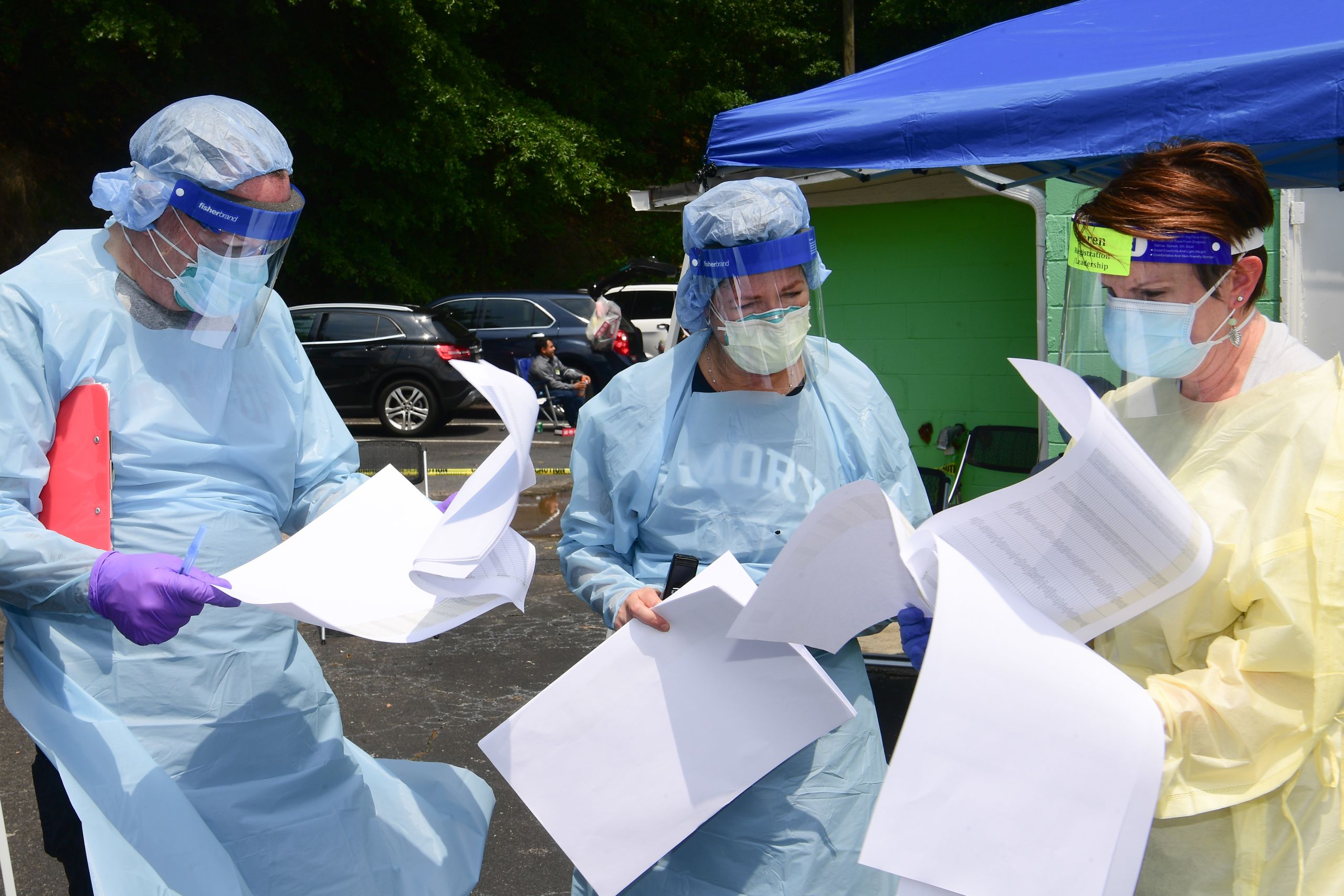
Rollins School of Public Health faculty and staff have been helping the state of Georgia implement its COVID-19 testing sites.
Rollins School of Public Health faculty and staff have been helping the state of Georgia implement its COVID-19 testing sites.
Emory long strived to be “community-first” in its research, teaching and learning, McCauley says. She asks, “How could scientists and students possibly understand, or sustainably address, the complex issues we have teamed up with communities to solve — such as environmental injustices, maternal-infant health disparities, or farmworkers’ exposure to pesticides — without the expertise and leadership of the people most affected?”
McCauley sees firsthand how community relationships enhance learning and research across programs. The nursing school’s service-learning partnerships with the Ellenton Clinic and the Farm Worker Family Health Program, the Community Advanced Practice Nurses Clinics, Clarkston Community Health Center and Talk with Me Baby are just a few places where, says the dean, “multidirectional community relationships drive profound social impact.”
Success in Arts, Science and Cultural Enrichment will mean leveraging Emory’s contributions in the arts and humanities and learning from the region’s rich cultural history to advance equity and social change, with a particular focus on educational enrichment for youth.
The Latino Youth Leadership Conference, a fruitful partnership between Emory and the Latin American Association, is but one example. It has been a driving force for 21 years empowering Latinx students on their higher education journey. Host of the conference four previous times, Emory also was at the fore of last October’s virtual conference centered on the theme “Create the World We Want to Live In.”

The futures of Emory and Atlanta are inseparable; the university's partnership with the city can be seen as a virtuous cycle.
The futures of Emory and Atlanta are inseparable; the university's partnership with the city can be seen as a virtuous cycle.
“To understand the human experience requires understanding diverse communities, and there is no better place to engage with the most pressing issues of social change and cultural expression than the city of Atlanta,” Elliott says. “We believe that our faculty and students can be resources for the many leaders throughout the city striving to create a more just, livable community. At the same time, we can learn from Atlanta’s leaders and residents about how to be better scholars and teachers.”
Where can Emory do the most good? It is a question Anderson and other leaders will continue to ask even as they measure and assess current programs.
The heart of this new strategy is, in Anderson’s words, “to use Emory’s research, scholarship, economic influence and human capital to focus on the greatest need areas, as determined by internal capacity and external community feedback.”
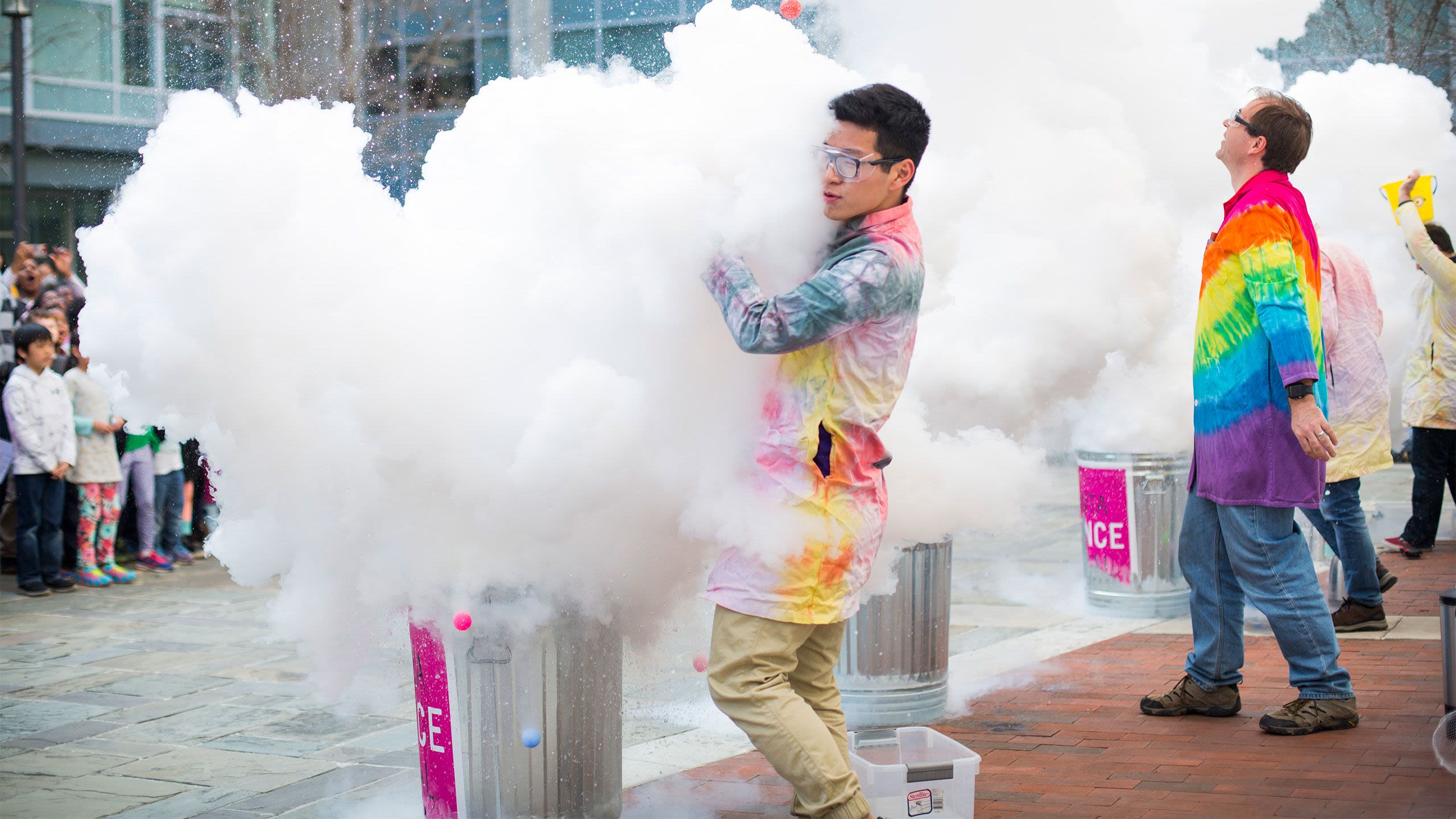
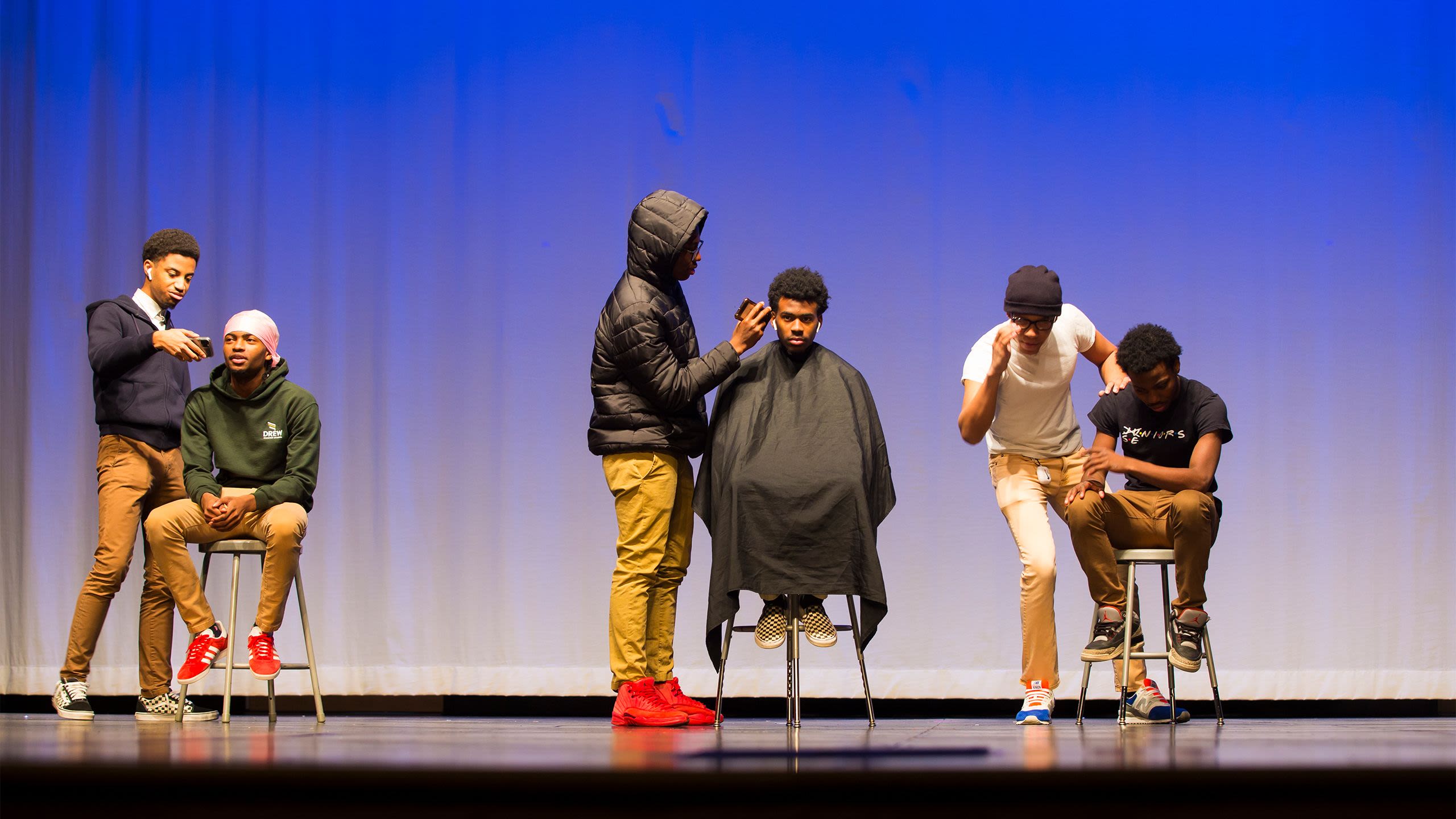
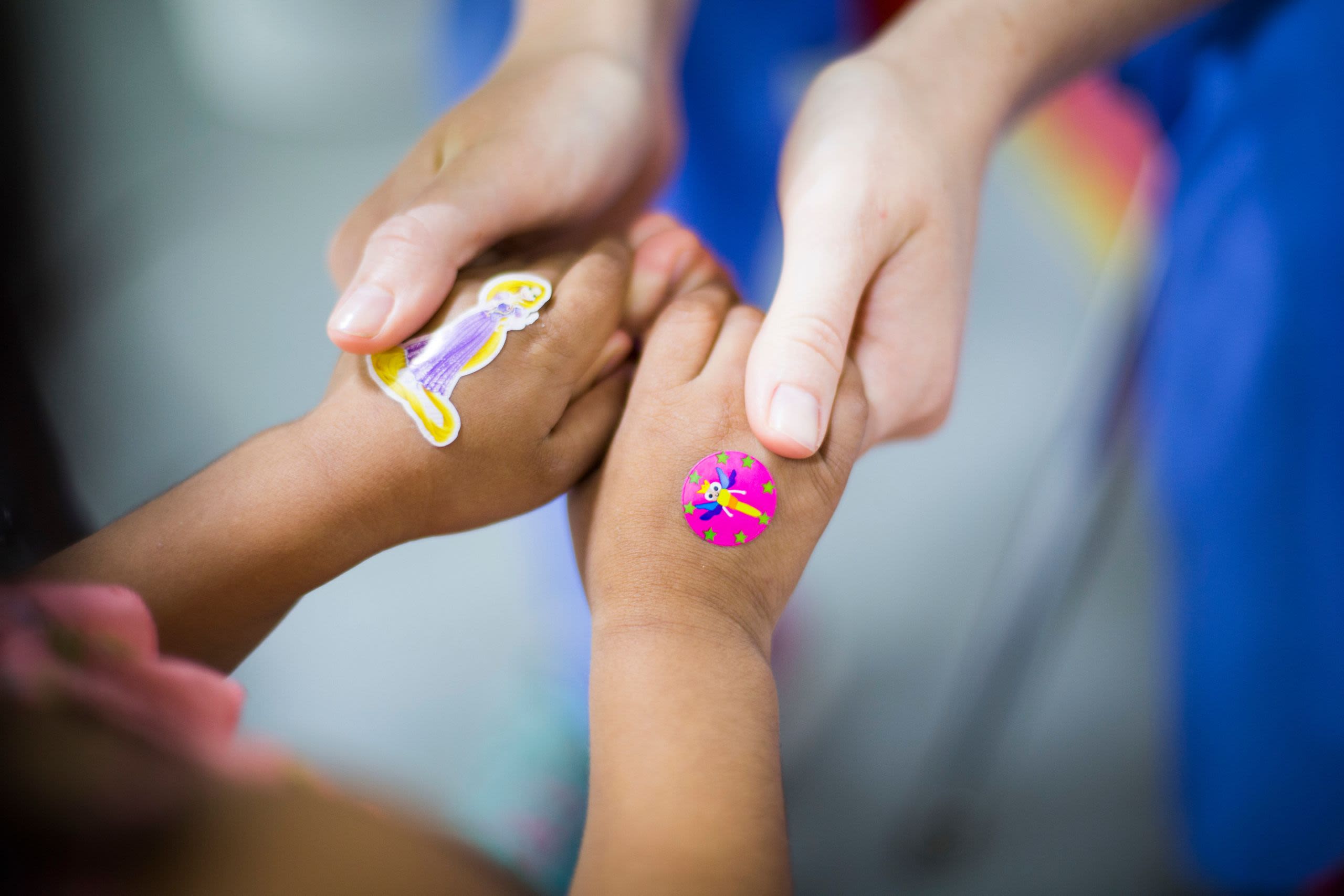

The Atlanta Science Festival is the product of 50 community partners, with Emory playing a major role.
The Atlanta Science Festival is the product of 50 community partners, with Emory playing a major role.

Drew Charter School students perform a play inspired by Emory's "Speak What Must Be Spoken" exhibit.
Drew Charter School students perform a play inspired by Emory's "Speak What Must Be Spoken" exhibit.

A little one gets an award for bravery at the Ellenton Health Clinic, which has seen nursing and physician assistant students from Emory treat 15,000+ farmworkers and their children since 1994.
A little one gets an award for bravery at the Ellenton Health Clinic, which has seen nursing and physician assistant students from Emory treat 15,000+ farmworkers and their children since 1994.
Do you have a business or nonprofit in Atlanta?
We can help increase your visibility, facilitate connections to the Emory community, and find student volunteers.
For details, visit the Government and Community Affairs website or contact Alan Anderson, assistant vice president for university partnerships, at alan.anderson@emory.edu or 773.841.3866.


